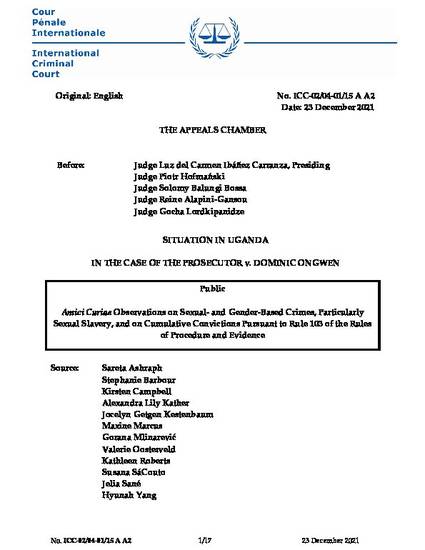
Sexual slavery is not a “form” of enslavement; rather, all acts of a sexual nature, including control over sexuality, sexual integrity and sexual and reproductive autonomy, constitute indicia of the exercise of powers of ownership of enslavement in all its forms. Consequently, enslavement as a crime against humanity is not “in the abstract entirely encompassed within sexual slavery.” To avoid entering cumulative convictions for separately enumerated crimes that do not each have a distinct element from the other, and to avoid a continuation of a discriminatory application of the law, amici suggest that, in the interests of justice, the Appeals Chamber reverse the Ongwen Trial Judgment on this point and enter convictions for enslavement rather than sexual slavery under crimes against humanity because conduct criminalised under sexual slavery constitutes criminal conduct already covered by enslavement. Amici believe that this would not be detrimental to Dominic Ongwen.
Available at: http://works.bepress.com/jocelyn-kestenbaum/88/
